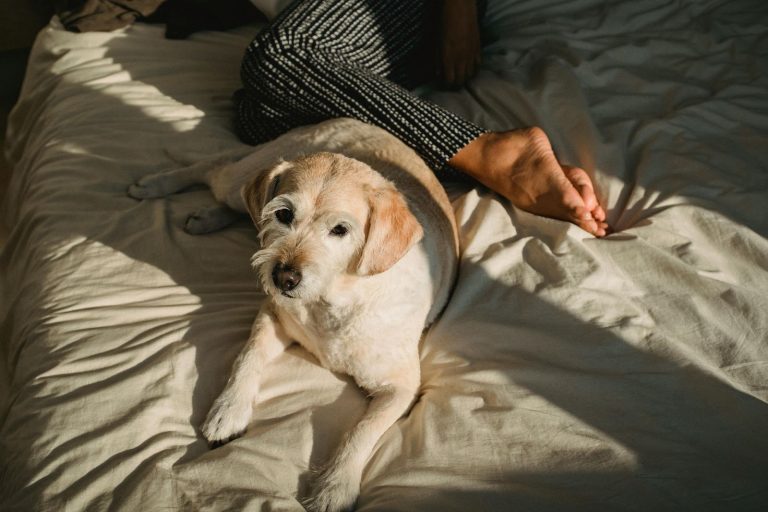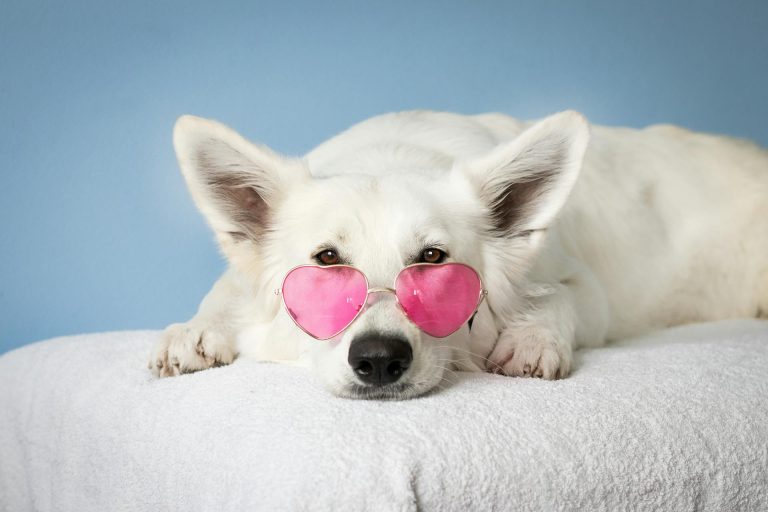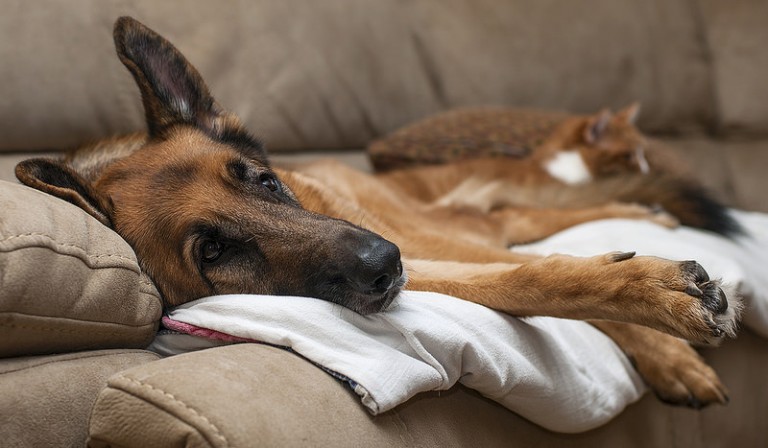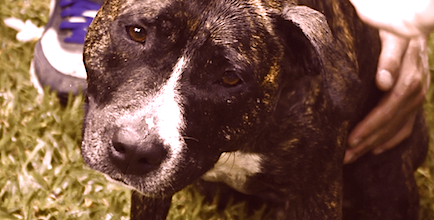Can Dogs Eat Rib Bones? A Comprehensive Guide
Can dogs eat rib bones? Find out the risks precautions in our guide to help keep your pup happy and healthy.

- No, dogs should not eat rib bones. They can splinter, choke, and cause internal injuries.
- Cooked bones are brittle, while raw bones still pose choking and bacterial risks.
- Instead, opt for vet-approved chew toys or dental treats that satisfy your dog’s chewing instincts without the risk of serious harm.
When it comes to treating our canine companions, it’s tempting to share our meals with them, especially when they give us those pleading puppy dog eyes. After enjoying a meal of ribs, a common question among dog owners is “can dogs eat rib bones?” In this article, we’ll explore the safety, risks, and precautions of feeding rib bones to dogs, as well as healthier alternatives.

Don’t leave your pet’s safety to chance
Sign up for Petful recall alerts today.

Why Are Rib Bones Dangerous for Dogs?
Rib bones, whether they are from pork, beef, or chicken, can pose significant health risks to dogs. It’s best to avoid offering rib bones of any kind to dogs. Here’s a detailed look at why, along with the potential dangers:
- Choking Hazard: Rib bones are typically small and can be easily choked on, especially by larger dogs who might attempt to swallow them whole.
- Splintering: Cooked bones tend to be more brittle than raw bones. When chewed, they can splinter and break into sharp pieces. These shards can cause serious internal injuries, such as lacerations or obstructions in the digestive tract.
- Digestive Blockages: Even if the bones don’t splinter, larger pieces can become lodged in the intestines, leading to blockages that might result in a need for surgery.
- Dental Problems: Chewing on hard bones can possibly break a dog’s teeth or damage the gums, which can be painful and possibly require veterinary treatment.
- Nutritional Imbalance: While bones do contain certain nutrients, relying on them as a treat or supplement can lead to nutritional imbalances if not properly balanced with other foods.
Safer Alternatives to Rib Bones
Considering the risks associated with rib bones, here are some safer alternatives to keep your dog happy:
- Commercially Available Dog Bones: There are many types of dog bones and chews available that are specifically designed to be safe for dogs. These are usually made from materials that are safe for dogs to chew on and are less likely to lead to gastrointestinal issues or choking.
- Dental Chews and Toys: Dental chews and specially designed chew toys can satisfy your dog’s chewing instinct while being safe and aiding in dental health.
How Many Rib Bones Can Dogs Eat Before Getting Sick?
Given the dangers rib bones can pose to dogs if consumed, it is best to avoid feeding them any amount of rib bones at all. In fact, keep rib bones out of your dog’s reach, and be sure to be careful when disposing of leftovers in case your pup is able to get into them. If your dog snatches up even a single rib bone, it could splinter and harm their internal organs, or it could become lodged in their throat and cause an obstruction.
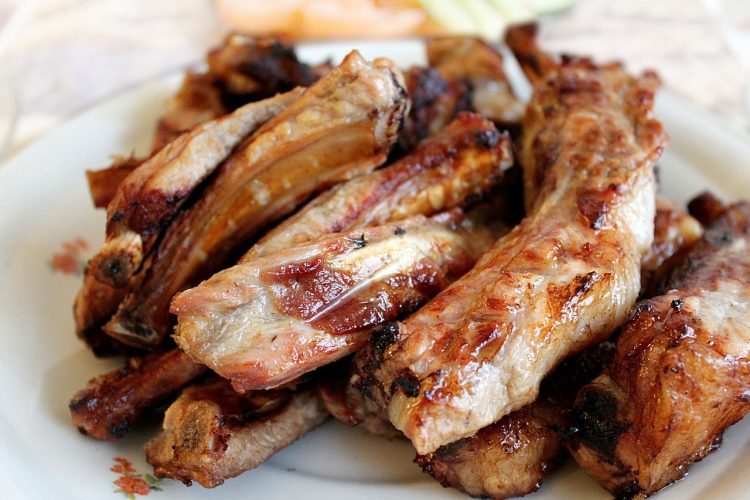
What If My Dog Ate It Already?
If your dog has eaten a rib bone, it’s important to act promptly to minimize potential risks and complications. Here are some steps you should take:
- Don’t Panic, but Act Quickly: Stay calm so you can think clearly and make wise decisions, but don’t delay in addressing the situation.
- Monitor for Symptoms: Watch your dog closely for signs of distress, which can include gagging, drooling, pawing at the mouth, whining, vomiting, diarrhea, lack of appetite, lethargy, or abdominal pain.
- Check the Mouth and Throat: If it’s safe and your dog allows it, gently open their mouth to see if any bone fragments are lodged in their mouth or throat. If you see a bone that can be easily removed without causing distress or injury, you may gently attempt to remove it. However, do not attempt to remove a bone that is firmly lodged or causes discomfort.
- Do Not Induce Vomiting: Unless instructed by a veterinarian, do not attempt to induce vomiting. This could cause more harm, especially if sharp bone fragments are present.
- Call Your Veterinarian: Contact your vet or an emergency vet clinic immediately, even if your dog isn’t showing symptoms yet. They can provide you with the best course of action, which may include bringing your dog in for an examination.
- Provide a Quiet Resting Area: Once home, give your dog a quiet place to rest and recover. Avoid vigorous activity as it could exacerbate potential internal injuries.
- Observe for Several Days: Even if your dog seems fine initially, continue monitoring them for a few days. Sometimes symptoms of internal injury or blockage can take time to appear.
- Prevent Future Incidents: To prevent similar incidents, ensure that bones and other potentially harmful items are out of your dog’s reach. Consider safer alternatives for treats and chews.
Taking these steps can help ensure the best possible outcome for your dog if they ingest a rib bone. Always prioritize your pet’s safety and health by consulting with your veterinarian whenever such incidents occur.
In conclusion, while it might be tempting to toss a rib bone to your dog after dinner, the risks associated with this practice generally outweigh the benefits. Opting for safer alternatives can help prevent health emergencies and ensure that your dog enjoys their treats without harm. Always prioritize your pet’s safety and health, and when in doubt, ask your vet for guidance.
Frequently Asked Questions (FAQ)
Can Dogs Eat Rib Bones Cooked?
Cooked rib bones are not safe for dogs. When cooked, bones tend to become more brittle and can easily splinter when chewed by a dog. These splinters can lead to serious health risks, such as punctures or blockages in the gastrointestinal tract, which could be life-threatening. Additionally, cooked bones can pose choking hazards and cause damage to a dog’s teeth and gums.
Can Dogs Eat Rib Bones Raw?
Feeding raw rib bones to dogs is a topic with mixed opinions among pet owners and veterinarians. Raw rib bones still pose a choking hazard to dogs and could splinter, causing possible internal punctures or blockages. Additionally, raw bones can carry bacteria like Salmonella, which can pose health risks to both dogs and humans in the household. If you are considering feeding raw rib bones to your dog, it’s essential to consult with your veterinarian first. They can provide guidance based on your dog’s size, breed, overall health, and dietary needs.
Can Dogs Eat Chicken Bones?
It’s not a good idea for dogs to eat chicken bones because they pose a lot of the same risks. These bones are brittle and could snap, leading to possible internal punctures or obstructions. Additionally, chicken bones are a possible choking hazard for dogs. Thus, it’s best to keep bones away from your pup.
Can Dogs Eat Pork Rib Bones?
Feeding pork rib bones to dogs is generally not recommended. Both cooked and raw pork rib bones can present significant health hazards. Furthermore, pork bones are often smaller and more brittle, increasing the risk of these same dangers. For the safety and health of your dog, it’s advisable to avoid giving them pork rib bones and instead opt for safer, vet-recommended chew toys or treats designed specifically for dogs.
Curious about what other foods dogs can eat? Check out these related articles below:

